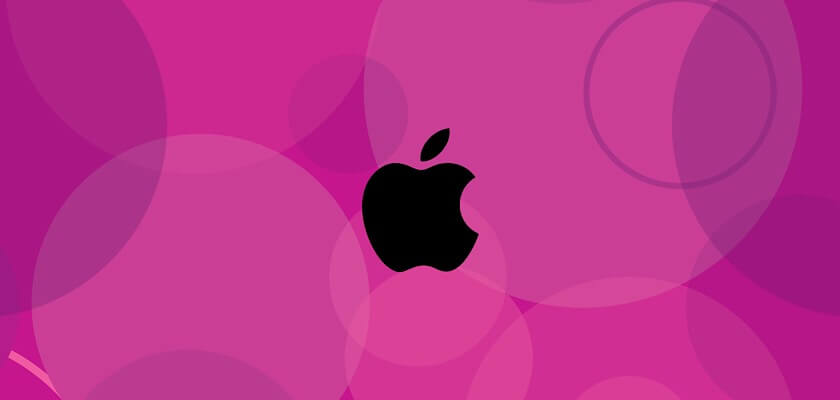Over the last year, Apple has faced numerous claims that the App Store is a monopoly and that it unfairly uses its monopolistic power to engage in anti-competitive practices. These claims recently came to a head when the US Supreme Court ruled that Apple will have to face an antitrust case related to this alleged monopolization. Now in the wake of these claims, Apple has published a new post which says that the App Store “welcomes competition” and that it strongly supports “all points of view being represented.”
While Apple doesn’t directly address any of the allegations levied against the App Store in the post, it does make a number of claims that indirectly suggest the App Store is not a monopoly.
Here’s a summary of the main claims Apple makes to position the App Store as an open and competitive marketplace:
1. The App Store welcomes competition
One of the strongest claims that Apple makes in the post is that the App Store is “a store that welcomes competition.” This claim directly opposes the allegations made in the Apple Inc. v. Pepper antitrust case and Spotify’s complaint against Apple to the EU which both allege that Apple is using its App Store monopoly to act in an anti-competitive way.
Apple makes two main arguments for the App Store welcoming competition. First, it highlights that the App Store hosts third-party apps that compete directly with Apple’s apps. These apps include competitors to Apple’s Calendar, Camera, FaceTime, iCloud, iMessage, Mail, Maps, Music, Notes, Podcasts, Safari, and TV apps. Second, it suggests that the App Store is part of a competitive marketplace where developers have lots of choices for distributing their apps.
2. Apple often takes no commission in the App Store
The antitrust case and Spotify’s complaint against Apple both claim that Apple’s 30% App Store fee is anti-competitive. Apple counters these claims in its post by highlighting that it doesn’t take a commission from most of the apps that are hosted in the App Store.
Specifically, Apple says that it takes no commission from:
- Free apps which represent 84% of apps in the App Store
- In-app ads
- Physical goods and services that are sold through apps
- Cross platform apps where the customer purchases outside of the App Store
- Reader apps such as Kindle, Netflix, and Spotify which allow users to purchase content outside of the app and then access that content in the app
3. The App Store strongly supports all points of view
Apple is often accused of censoring certain viewpoints on its App Store with the removal of the Infowars app and certain games being some of the many examples of what users believe to be Apple’s ideological censorship.
Apple appears to be pushing back against these claims of censorship in its post by saying: “We strongly support all points of view being represented on the App Store.”
4. The App Store benefits customers and developers
Throughout the post, Apple positions the App Store as something that greatly benefits both customers and developers. This implies that it can’t be acting in an anti-competitive way because it’s providing so much value for all its users.
Some of the main ways Apple believes that the App Store benefits customers and developers include:
- Through its app review service (which Apple says maintains the integrity of the App Store for customers while giving developers the guidance they need to get their apps into the App Store)
- Through its app store promotions (which give free marketing to developers and help support the millions of successful apps on the App Store which have generated $120 billion worldwide)
- Through its contribution to the development of the app design and development industry (which generates over 1.5 million jobs in the US and 1.57 million jobs in Europe)
- Through its various programs that support developers
Questioning Apple’s claims
While Apple does provide lots of examples that indicate the App Store is a competitive environment, there are many reasons to question Apple’s claims.
For example, in its complaint to the EU, Spotify highlighted that while Apple does allow third-party apps to compete with Apple owned apps in the App Store, Apple often places unfair restrictions on these apps. In Spotify’s case, Apple Music integrates directly with Apple’s HomePod smart speaker but Spotify (a direct competitor to Apple Music) doesn’t have this direct integration. There are many other examples of Apple granting permissions to its own apps and restricting the permissions of competing third-party apps in a similar fashion. A lot of people believe that this behavior is a clear example of Apple using its App Store monopoly to act in an anti-competitive way.
Apple also doesn’t mention that hosting “cross platform apps” (apps where customers can pay through an in-app purchase or on another platform) and “reader apps” is likely to boost its overall App Store revenue. This is because Apple prohibits developers from linking to purchasing options outside of the App Store in these apps. This means:
- For “cross platform apps”: The in-app purchase option is the only buying option customers will see. When they use this buying option, Apple gets a 30% commission.
- For “reader apps”: Users are forced to go through a more drawn out purchasing process than when using Apple’s own apps. Many consumers are likely to prefer the easier in-app purchase process and choose to use Apple services instead of competing third-party services because of the added convenience that they provide.
In addition to this, while Apple says it supports all points of views being represented in the App Store, it doesn’t provide any evidence of this claim and includes the caveats that it rejects apps for containing “any content or behavior that we believe is over the line” and “anything else in exceptionally poor taste” – two subjective guidelines that could be used to easily censor certain points of view.






















